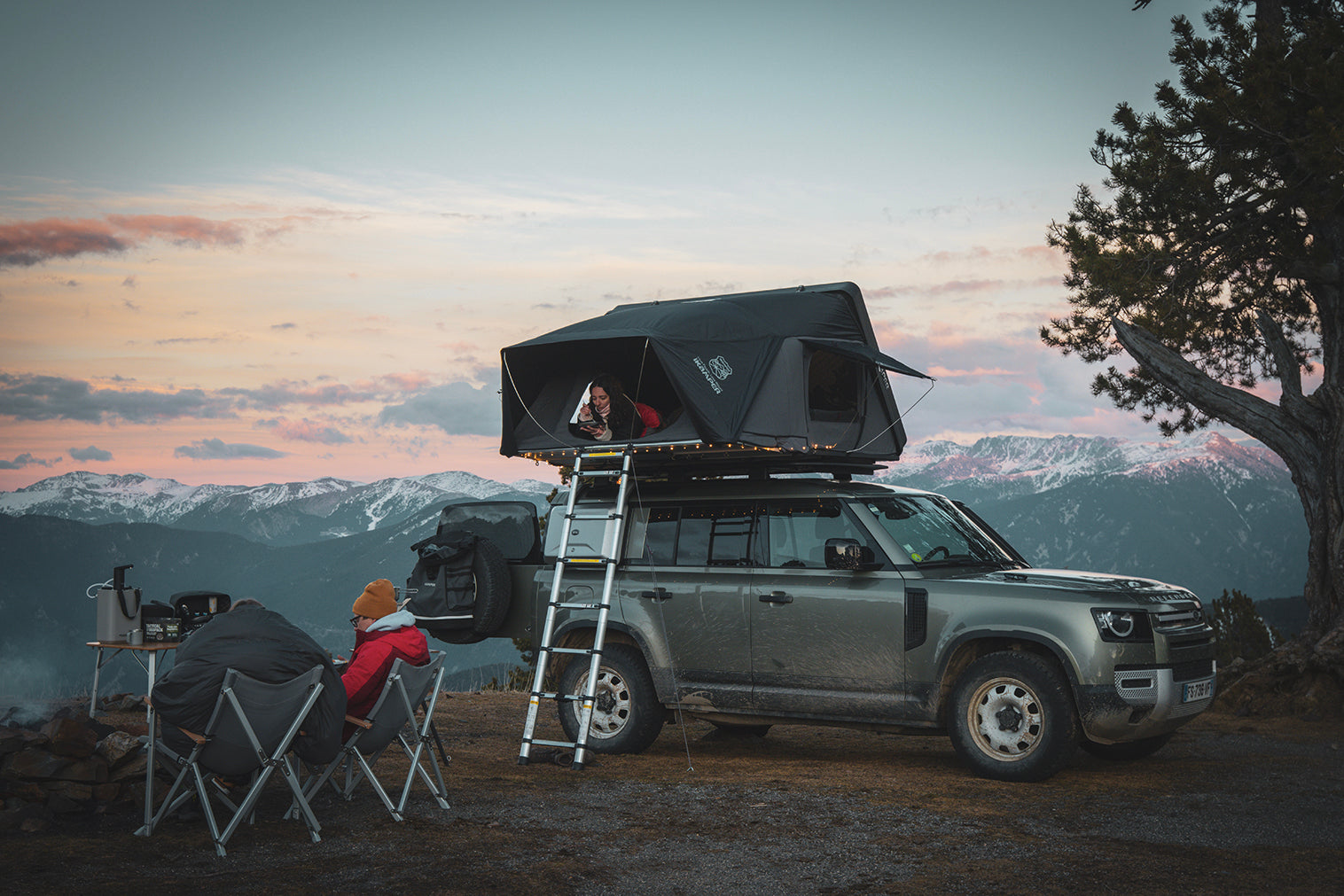Shop
Roof tents
Roof tent accessories
Bivouac and camping equipment
Roof tents
Roof tent accessories
Bivouac and camping equipment

FIND THE BEST PLACES TO CAMP
June 14, 2023
You're ready to go on a trip and enjoy nature and the wide open spaces it offers. But do you already know where you're going to stay?
There are many options available, but it is important to plan ahead to avoid unpleasant surprises and find yourself without available options.
In this article, we'll explain how to find free camping spots, paid campsites, and the dos and don'ts of camping.
CAMP FOR FREE
If you're looking for free camping spots, then take note, this is the place to be! If you've been reluctant to hop in your vehicle and head out in search of spots to set up camp, thanks to our tips, it'll now be much easier for you. It may seem a bit adventurous to the uninitiated, but don't worry, your bravery will be rewarded.
This type of camping is more commonly referred to as "wild camping" because you won't have essential amenities like electricity, water hookups, toilets, showers, or even trash cans. You also risk finding yourself in an area with very little or no cell phone service. The advantage, because yes, you still need one, and not the least, is that you'll have privacy, spectacular scenery, and truly be in touch with nature. Here's what you need to know:

ANTICIPATE IMPORTANT QUESTIONS
Is access to the area you plan to set up permitted? Are there any restrictions? Is the area safe? Are there any fire bans?
A quick internet search or a call to the tourist office can provide answers. If you're lucky, a park ranger may even be able to tell you how to find a free camping area. Don't be reckless and remember to follow the rules to stay safe and preserve the area you're in.

PLAN YOUR ROUTE
- Apps like Park4Night help you find places to camp, in particular thanks to reviews left by campers, and a more or less detailed description depending on the location of the camping spot.
- Gaia GPS is another application that will allow you to create a route of your trip with the places where you want to stop, refuel or get food.
- Remember to download your maps so you can use them even if you don't have internet.
- We even recommend bringing a traditional card in case you lose signal or run out of battery.
- Even if a road is marked on a map, it is not necessarily passable. There may also be road closures due to downed trees, snow, ice, or landslides. Always have a plan B or C.
NEVER LEAVE TRASH BEHIND
- Whether it's food wrappers, tissues, toiletries, or human waste, don't leave a trace of your visit. It's certainly the least glamorous part of camping, but it's one of the most important! It's even less glamorous when campsites are littered with trash. Keep in mind that other people will come after you, which is why it's important to leave each site cleaner than when you arrived.
- If you see any trash left behind when you arrive, don't hesitate to get your hands a little dirty and pick it up and dispose of it in a designated area. While it's the responsibility of those who have passed by before to not leave anything behind, sometimes people don't respect these rules of good living.
STAY ON THE MARKED TRAILS
Wild camping doesn't mean camping anywhere. Find out if the land is previously owned, used for farming, or livestock breeding. Stick to trails already marked by locals or previous campers as much as possible. Avoid creating new paths. Most free camping areas will be easy to spot. Although they may not be marked, you'll see signs of previous use. You can clean up debris such as fallen branches, but don't cut down trees or clear vegetation to create a new camping space.

PAID CAMPSITES
Of course, you might prefer a less stressful trip and to relax even more, or simply take a good shower at least once during your trip. For this, the solution is the more traditional method of booking a paid campsite with a dedicated pitch. Everything you might be missing during wild camping, you'll find it here. Whether it's showers, electricity, toilets, or even a swimming pool, a jacuzzi, or a gym for some campsites, you'll have the choice when booking your pitch.
It is also a less wild and therefore more social environment, where you will meet other people and be able to participate in activities organized by the campsite or by your neighbors.

CONCLUSION
When you embark on a camping adventure, the most important thing is that you can relax during your trip, whether you're camping wild, paying for a campsite, or a combination of both. With a little organization and planning ahead, you'll find that you'll avoid many unexpected events and be able to fully enjoy your adventure and the stunning scenery that awaits you!
